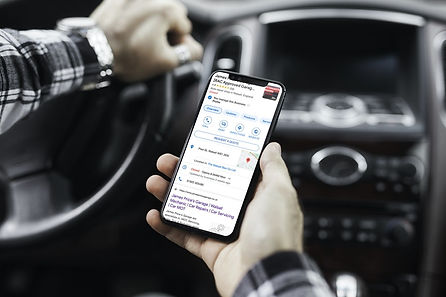As well as Terraclean, James Price’s Garage also offers a DPF clean suitable for vehicles with a DPF blocked with oil or ash. DPF’s block due to other problems, cleaning is not enough, you need the problem professionally identified and rectified, if not done correctly the unit will simply block again after cleaning.


What is a DPF?
A diesel particulate filter (DPF) is a device which sits within a vehicle’s exhaust system and is designed to “capture” soot/diesel particles to reduce harmful emissions into our towns and cities.
It became legal for vehicle manufacturers to fit DPFs to all vehicles when “Euro 5” emissions standards came into force in 2009, although some VMs did fit them prior to 2009.
DPFs are intended to self-clean, through a process called “regeneration”. This happens under certain driving conditions and the particles are emitted, leaving only a small ash residue. Sensors in the DPF unit communicate with the vehicle’s central computer (ECU) to determine when to clean/regenerate the DPF.
-
What Class is my vehicle?The type of vehicle you own depends on which class it is in, although some vehicles are completely exempt from an MOT test. Class 4 3-wheeled vehicles (over 450kg unladen weight) Cars (up to 8 passenger seats) Motor caravans Quads (max unladen weight 400kg – for goods vehicles and a max net power of 15kb) Dual-purpose vehicles Private hire and public service vehicles (up to 8 seats) Ambulances and taxis Private passenger vehicles and ambulances (9-12 passenger seats) Goods vehicles (up to 3,000kg design gross weight) Class 7: Goods vehicles (over 3,000kg up to 3,500kg design gross weight) Class 1: Motorcycles, with or without sidecars (engine size up to 200cc) Class 2: Motorcycles, with or without sidecars (engine size over 200cc) Class 3: 3-wheel vehicles (up to 450kg unladen weight) Class 4a: Class 4 vehicles (9-12 passenger seats) with a seat belt installation check Class 5: Private passenger vehicles and ambulances (13-16 passenger seats, and more than 16 passenger seats) Play buses Class 5a Class 5 vehicles (13-16 passenger seats, and more than 16 passenger seats) with a seatbelt installation check
-
How often does my car need an MOT?As an exception, new cars and motorcycles will only need an MOT after their 3rd year of operation, and then every year following that. You can book your MOT however far in advance of your due date as you wish, but you will only get a certificate for a full year from the renewal date if the MOT is done within 28 days prior to renewal. Otherwise, it’s a year from the date the MOT is completed and not the renewal.
-
What is included in an MOT?MOT tests assess every working component of your vehicle for correct operation, from seatbelts to brakes; exhausts to steering systems.
-
What do I need to bring to my MOT?The answer to this is simple: your vehicle! Previous MOT certification is not necessary, as James Price's Garage will be able to look up your car or motorcycle’s details on the DVSA system. Many vehicle owners choose to have their car serviced at the same time as getting an MOT, and in these cases it’s useful to take along your logbook/service history so that the person carrying out the work has an idea of what has been performed previously on the vehicle.
-
What happens if my car fails its MOT?If your car doesn’t meet the standard required on any of the points tested during an MOT, it will be failed and issued with a ‘refusal of MOT certificate’. If this happens, you have a couple of options: Valid MOT If you need to take your car away from the test centre to carry out necessary repairs, your existing MOT certificate remains valid until its expiry date. Should your previous MOT have expired, you are legally entitled to take your vehicle away to have any faults fixed, as well as onwards to a pre-arranged MOT retest. Retest If your vehicle fails but remains at the test centre for repair and is retested within 10 working days, the retest is provided for free. Similarly, if a partial retest is required (e.g. on a failure related to doors, mirrors, other bodywork or minor operational components), and the vehicle is taken back to the same test centre within 24 hours, a free retest may also be provided. If a car is taken away from the test centre to have repairs carried out, and is returned for a retest within 10 working days, then a partial retest fee is applied
Stage One - Diagnostics
We diagnose the condition of the Diesel Particulate Filter & establish if it's blocked. Then we have to establish the cause because cleaning alone usually doesn't resolve the problem, if the cause isn't identified then it is likely to block again very soon.
Stage Two - Cleaning
The cleaning process involves injecting Specialist TerraClean fluid directly into the Diesel Particulate Filter. This process will break down the carbon particles enough to be able to pass through the filter and reduce the exhaust back pressure. The engines management will then allow a regeneration again.
Stage Three - Regeneration
The cleaning process involves injecting Specialist TerraClean fluid directly into the Diesel Particulate Filter. This process will break down the carbon particles enough to be able to pass through the filter and reduce the exhaust back pressure. The engines management will then allow a regeneration again.








